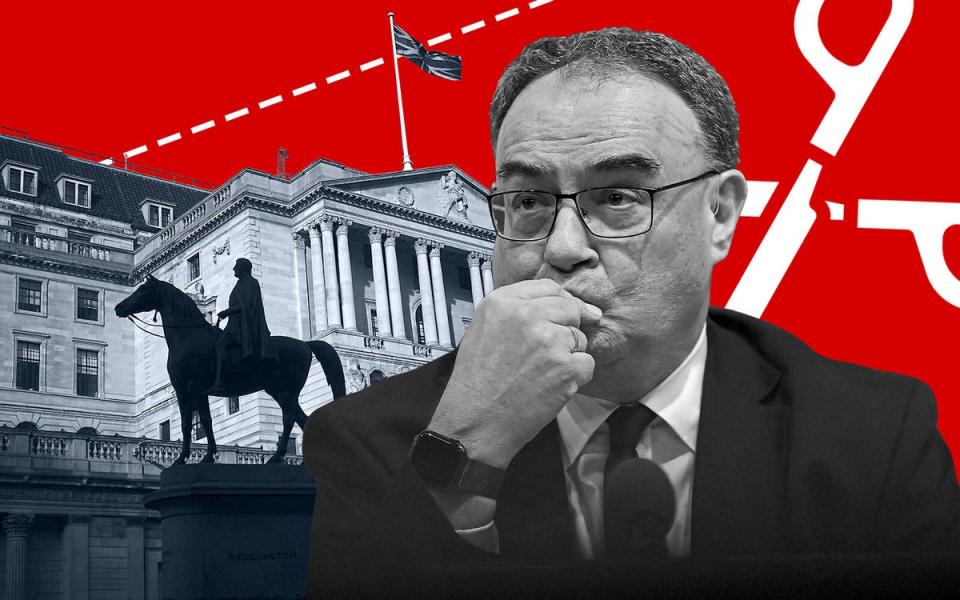Inflation may soon be too low. But the Bank of England is scared to cut interest rates

For the past three years we have been blighted by inflation and told that, however painful it may be, the Bank of England’s interest rates had to go higher, all the way to a 14-year high.
From next week we could start reading that inflation is in fact now too low, a change of direction that might make little sense to non-economists, or indeed to most people noticing just how much more expensive almost everything is (bills, pints of beer, insurance, taxis).
But there is a growing feeling in the City that next Wednesday, April’s CPI (Consumer Prices Index) data will come in at below the 2% target.
There’s some question whether 2% is a good inflation target in the first place — plenty of academics say either that 3% would be better, or that we just needn’t be so wedded to the target, whatever we decide it should be.
But leaving that aside, the consensus is that inflation hovers around 2%, and maybe ticks back up above it over the next couple of years.
Capital Economics is one observer which goes further than that. It thinks that the average rate of inflation between now and the end of 2026 will be 1.1%.
If it is right, then the Bank of England should surely be cutting interest rates already rather than sucking its teeth and waiting for the evidence to hit it over the head.
By common consent, the Bank was far too slow to put rates up as inflation gathered pace.
It now looks like it could be too slow to cut them as inflation tumbles. It is hard to avoid the conclusion that the Bank’s Monetary Policy Committee doesn’t want to be the first major central bank to cut rates.
It wants the cover of the US Fed or the European Central Bank cutting their rates, so it can follow suit.
If there’s anything in that suggestion, it’s faint-hearted of our rate setters.
The Bank should start chopping borrowing costs as soon as it can.

 Yahoo Finance
Yahoo Finance 